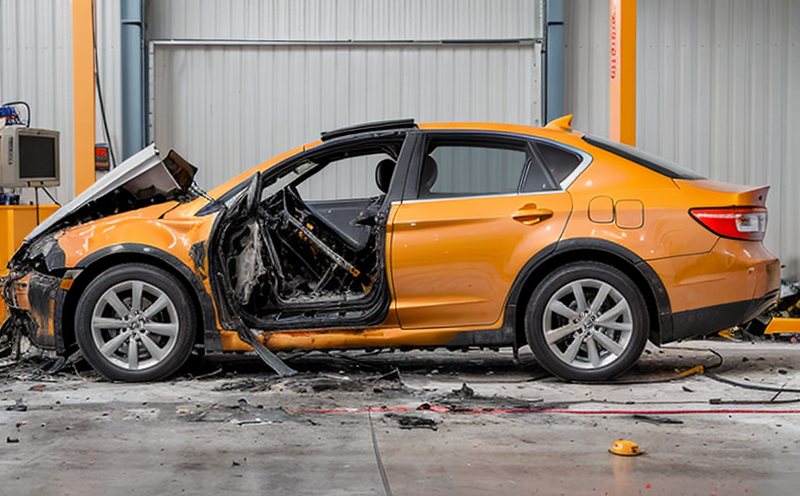KS C IEC 62619 Mechanical Abuse Testing of Industrial Lithium Batteries
The KS C IEC 62619 standard sets forth the requirements for mechanical abuse testing, ensuring that industrial lithium batteries meet stringent safety and performance criteria under various abusive conditions. This service is pivotal for quality managers, compliance officers, R&D engineers, and procurement professionals who aim to ensure battery reliability in demanding environments.
During this test, industrial lithium batteries are subjected to a series of mechanical stressors that simulate real-world abuse scenarios. These tests include crush testing, vibration exposure, temperature cycling, and more. The goal is to evaluate the battery's resistance to damage under these conditions, thereby ensuring product safety and performance.
Industrial applications demand robust and reliable batteries capable of withstanding harsh environments without compromising on functionality or safety. This service plays a crucial role in meeting those demands by providing comprehensive insights into the mechanical robustness of industrial lithium batteries.
The test setup involves specific apparatus that can simulate real-world conditions accurately, such as crush testing machines capable of applying defined pressure loads and vibration tables designed to replicate road conditions. The results are analyzed against predefined acceptance criteria specified in KS C IEC 62619, ensuring compliance with international standards.
Compliance with this standard is essential for manufacturers aiming to enter global markets or meet specific regulatory requirements. It not only ensures product safety but also enhances brand reputation by demonstrating a commitment to quality and reliability.
The service includes detailed reporting that outlines the test parameters, specimen preparation procedures, instrumentation used, and final results against acceptance criteria. This comprehensive approach provides clients with clear insights into their batteries' performance under abusive conditions, facilitating informed decision-making for product development and quality assurance processes.
Applied Standards
| Standard Number | Description |
|---|---|
| KS C IEC 62619:2014 | Test methods for safety of rechargeable cells and batteries intended for industrial use. |
| IEC 62619:2015 | International standard for testing the mechanical abuse resistance of industrial lithium batteries. |
Customer Impact and Satisfaction
- Enhanced product safety through rigorous testing under abusive conditions.
- Increased market competitiveness by meeting global standards.
- Reduced risk of recalls and liability issues due to product failures.
- Improved brand reputation among consumers and regulatory bodies.
Use Cases and Application Examples
| Application Example | Description |
|---|---|
| Battery-powered industrial vehicles | Testing ensures batteries can withstand harsh off-road conditions. |
| Backup power systems for critical infrastructure | Ensures batteries provide reliable power even in extreme environmental conditions. |





